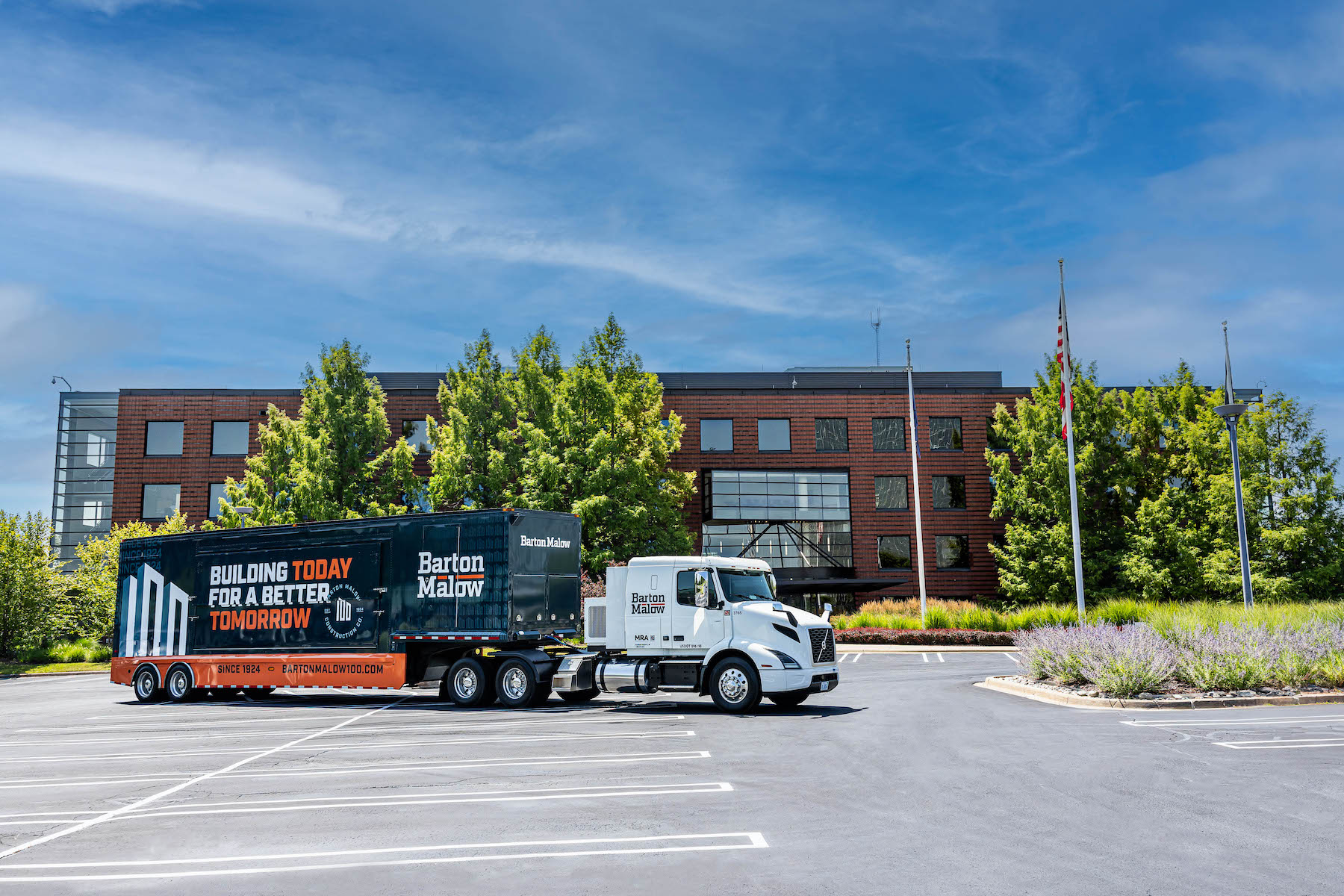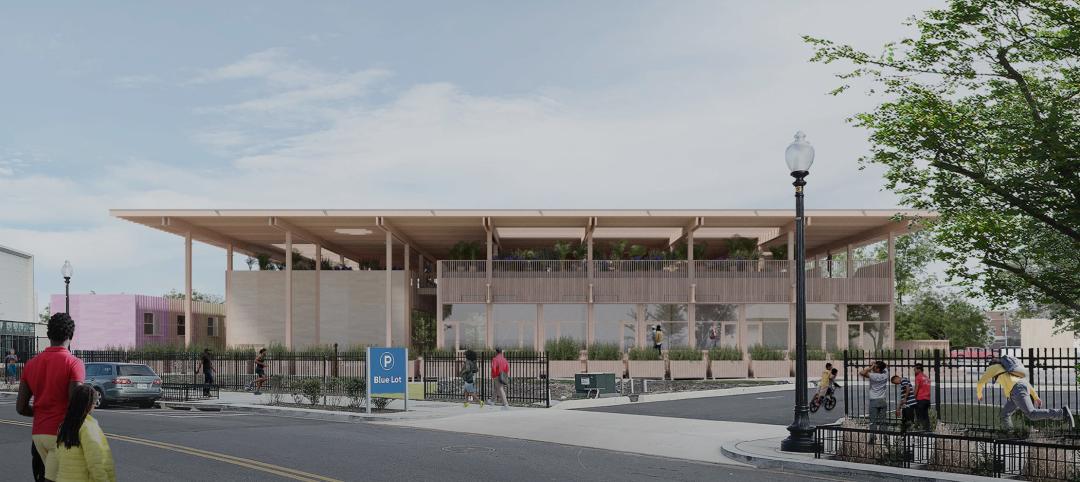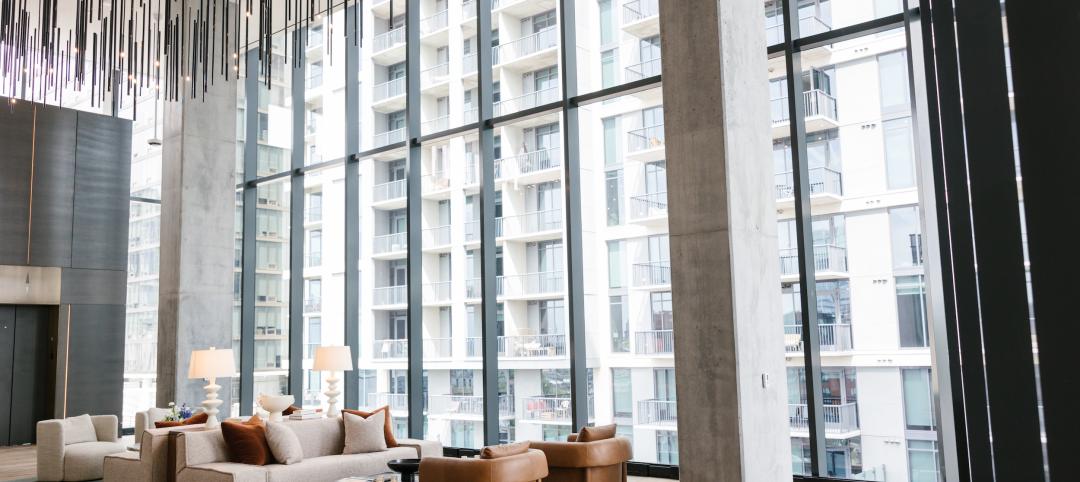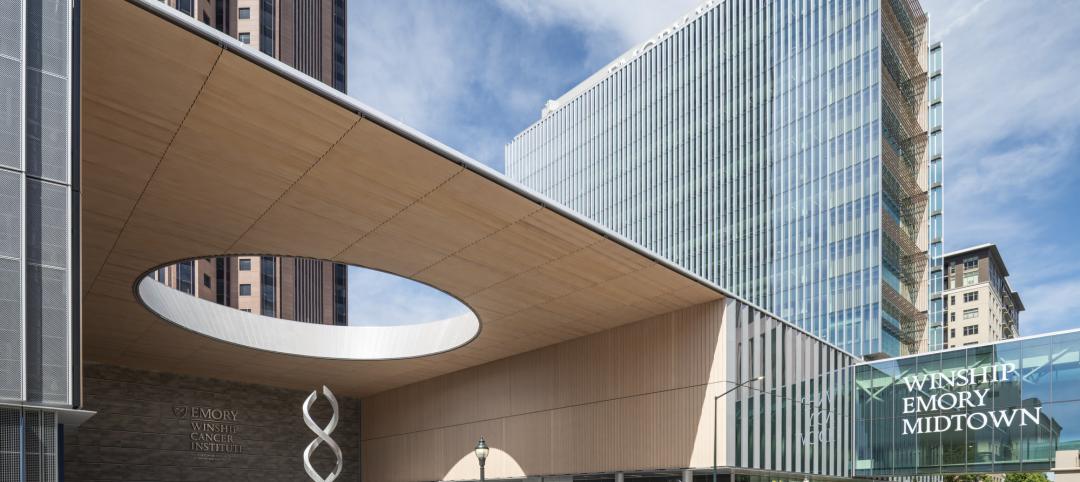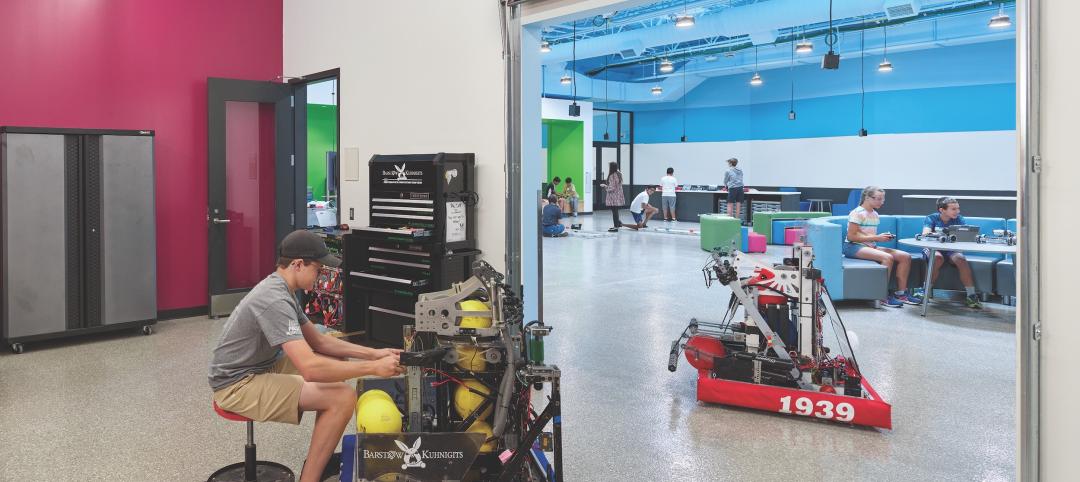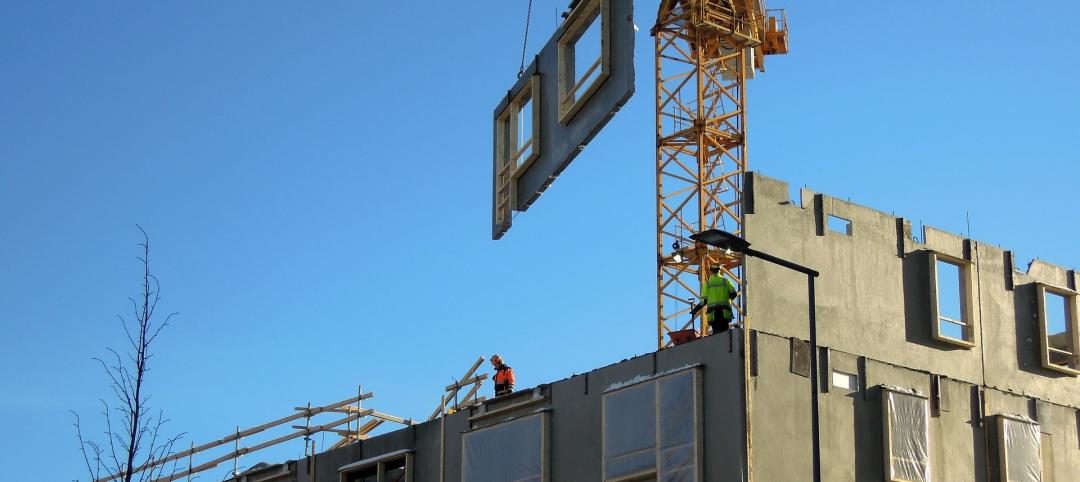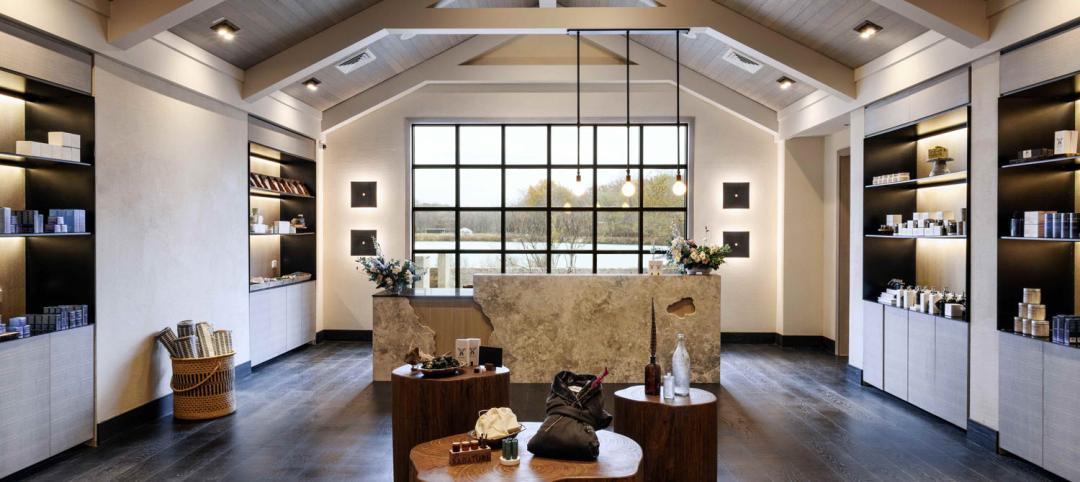The general contractor Barton Malow is taking its centennial celebration on the road.
This Friday, the company will make the first stop on its “Legacy Tour” in Detroit, a city where Barton Malow was founded by Carl Osborn Barton in 1924, and with which it has a long building history. (Its first contract was interior renovations for Michigan Bell Telephone Company.)
The company’s 100th anniversary exhibit, which includes special artifacts and interactive displays, is contained within a 42-ft truck, on the side of which reads Barton Malow’s tagline: “Building Today for a Better Tomorrow.”
(It takes about an hour to set up the stage and stairs to access the exhibit, says a company spokesman.)
Through the end of October, the truck is scheduled to make about 30 stops that will include 20 at Barton Malow projects and jobsites.
Celebrating employees and the Motor City
Ryan Maibach, the company’s fourth generation President and CEO, said in a prepared statement that Barton Malow’s anniversary is meant “to celebrate the contributions of the team members on our jobsites.” The Legacy Tour, he added, will “give team members the opportunity to experience this initiative.”
Barton Malow re-emphasizes its connection with Detroit on its website, which features a nearly 10-minute video where Maibach and three other team members—Kara Martini, Detroit office manager; Kevin Zeleji, Senior Director of Field Services; and Dannis Mitchell, Senior Director-Community Engagement—single out Detroit-area projects that Barton Malow built, including the historic restoration and rebuilding of the 130-room Shinola Hotel, which took two years to complete; and the construction of Little Caesars Arena, on which Barton Malow worked with Hunt and White Construction. Three-fifths of the contractors on the $862 million arena project were Detroit-based, said Mitchell.
“With every project we do, we’re partnering with the community,” said Zeleji on the video interview. Maibach, who has been the company’s president since 2011, also emphasized the importance of market diversity and expansion. Barton Malow launched its Mid-Atlantic operations in 1989, and is now building in 16 states nationwide and the Canadian province of Ontario. It serves nine building types.
Related Stories
Retail Centers | Jun 2, 2023
David Adjaye-designed mass timber structure will be a business incubator for D.C.-area entrepreneurs
Construction was recently completed on The Retail Village at Sycamore & Oak, a 22,000-sf building that will serve as a business incubator for entrepreneurs, including emerging black businesses, in Washington, D.C. The facility, designed by Sir David Adjaye, the architect of the National Museum of African American History and Culture, is expected to attract retail and food concepts that originated in the community.
Mixed-Use | Jun 1, 2023
The Moore Building, a 16-story office and retail development, opens in Nashville’s Music Row district
Named after Elvis Presley’s onetime guitarist, The Moore Building, a 16-story office building with ground-floor retail space, has opened in Nashville’s Music Row district. Developed by Portman and Creed Investment Company and designed by Gresham Smith, The Moore Building offers 236,000 sf of office space and 8,500 sf of ground-floor retail.
Healthcare Facilities | Jun 1, 2023
High-rise cancer center delivers new model for oncology care
Atlanta’s 17-story Winship Cancer Institute at Emory Midtown features two-story communities that organize cancer care into one-stop destinations. Designed by Skidmore, Owings & Merrill (SOM) and May Architecture, the facility includes comprehensive oncology facilities—including inpatient beds, surgical capacity, infusion treatment, outpatient clinics, diagnostic imaging, linear accelerators, and areas for wellness, rehabilitation, and clinical research.
K-12 Schools | May 30, 2023
K-12 school sector trends for 2023
Budgeting and political pressures aside, the K-12 school building sector continues to evolve. Security remains a primary objective, as does offering students more varied career options.
Multifamily Housing | May 30, 2023
Boston’s new stretch code requires new multifamily structures to meet Passive House building requirements
Phius certifications are expected to become more common as states and cities boost green building standards. The City of Boston recently adopted Massachusetts’s so-called opt-in building code, a set of sustainability standards that goes beyond the standard state code.
Contractors | May 26, 2023
Enhanced use of data is crucial for improving construction job site safety
Executives with major construction companies say new digital tools are allowing them to use data more effectively to reduce serious safety incidents and improve job site safety.
Contractors | May 24, 2023
The average U.S. contractor has 8.9 months worth of construction work in the pipeline, as of April 2023
Contractor backlogs climbed slightly in April, from a seven-month low the previous month, according to Associated Builders and Contractors.
Mass Timber | May 23, 2023
Luxury farm resort uses CLT framing and geothermal system to boost sustainability
Construction was recently completed on a 325-acre luxury farm resort in Franklin, Tenn., that is dedicated to agricultural innovation and sustainable, productive land use. With sustainability a key goal, The Inn and Spa at Southall was built with cross-laminated and heavy timber, and a geothermal variant refrigerant flow (VRF) heating and cooling system.
Architects | May 23, 2023
DEI initiatives at KAI Enterprises, with Michael Kennedy, Jr. and Gyasi Haynes
Michael Kennedy, Jr. and Gyasi Haynes of KAI Enterprises, St. Louis, describe their firm's effort to create a culture of diversity, equity, and inclusion—and how their own experiences as black men in the design and construction industry shaped that initiative.
Multifamily Housing | May 23, 2023
One out of three office buildings in largest U.S. cities are suitable for residential conversion
Roughly one in three office buildings in the largest U.S. cities are well suited to be converted to multifamily residential properties, according to a study by global real estate firm Avison Young. Some 6,206 buildings across 10 U.S. cities present viable opportunities for conversion to residential use.


